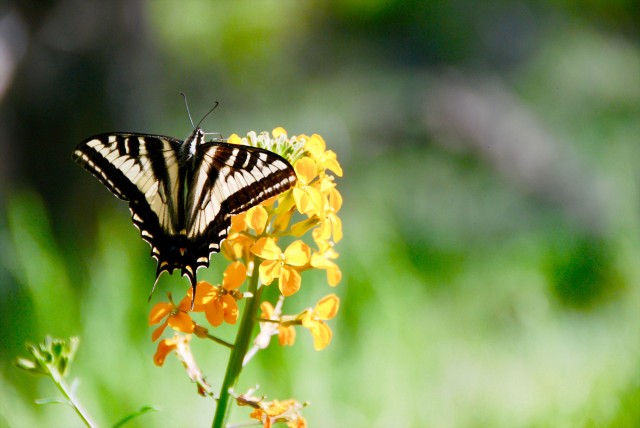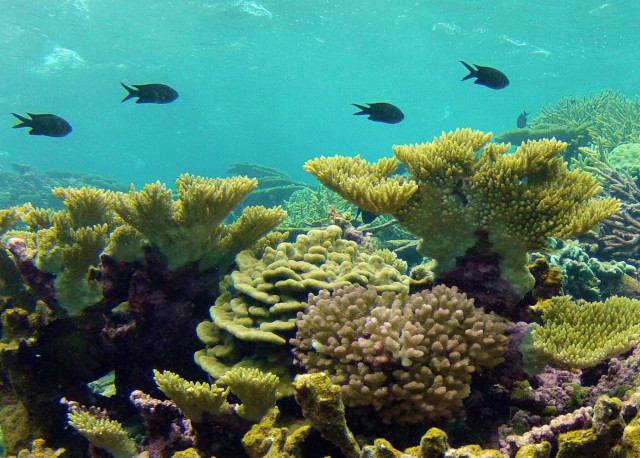Ecology

Ecology is a large, diverse and vibrant field of science. Ecologists work across a broad range of biological organization, from processes acting within individual organisms, to populations of a single species, to sets of species that occur together in communities or interact with their physical environment in ecosystems. Ecologist use both theory and empiricism, and work in the field and the laboratory.
Ecologists in EEMB strive to generate new understanding of the relationship between organisms and their biotic and abiotic environment, using two overlapping approaches. One is driven by the attempt to generate and test general ideas in ecology. EEMB faculty have made important contributions to the development of general ecological theory and testing it with studies of population regulation, community structure, and ecosystem function. The second approach focuses on problems specific to particular ecological systems such as deserts, the tundra, the coastal ocean, lakes, and streams. (View List of Ecology Faculty)
Evolution

The modern theory of evolution forms the theoretical foundation for our understanding of biology. Indeed, Theodosius Dobzhansky famously proclaimed that “nothing makes sense in biology except in the light of evolution." Be it the dynamics of interacting populations, the structure and function of organisms, or the molecular interactions within cells, evolutionary biologists gain insight by seeing biological problems in four dimensions. Explaining how differences among organisms arise from DNA differences, for example, is central to the goals of evolutionary biology. Understanding biodiversity, from diversity in human drug response to diversity of species in undisturbed ecosystems, requires a better understanding of how changes in DNA lead to changes in organisms. Evolutionary biologists in UCSB persue this challenge from many angles, including population genetics, evolutionary physiology, and phylogenetics. Predicting ecological responses to global change also hinge on an understanding of evolution. Protecting ultra-diverse habitats like coral reefs, endemic local ecosystems such as serpentine plants in California, and agro-ecosystems that feed the human population all depend on understanding ecological interactions. However, understanding the current network of species interactions is insufficient: these interactions change over time due to evolution. The integration of ecology and evolution is therefore a core goal of our department. For these and other reasons, evolutionary biologists at UCSB are integrating an understanding of the causes of evolution with the consequences of those processes. (View List of Evolution Faculty)
Marine Biology

Marine Biology encompasses the broad study of marine organisms, their behaviors, and their interactions with the environment. As the only major research university in the country located entirely on the ocean UCSB faculty are uniquely positioned to study the sea. EEMB faculty investigate aspects of marine biology that provide the basic understanding of ocean biota at the organismal, population and ecosystem level required to solve pressing marine issues related to human use and environmental change. Research on genetics and evolution provides critical insight into how environmental factors influence an organism’s physiology and behavior, and ultimately the ecological functions of marine ecosystems and the services that they provide. EEMB faculty develop the scientific understanding of ecology, evolution and genetics needed to address environmental issues ranging from changes in biodiversity and ecosystem function, to fisheries management, and the spread of invasive species, parasites and disease. EEMB offers a broad array of research in these areas ranging from microbial and organismal physiology to coral reef, coastal, deep sea, and open ocean ecology. (View List Marine Biology Faculty)
